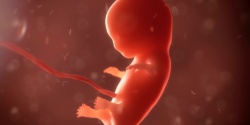Published: 03.09.2024

· The UN-affiliated Committee on the Elimination of Discrimination against Women (CEDAW) has assessed that Poland’s abortion laws are too strict and thus violate women’s rights.
· However, the CEDAW report is not binding on countries, and the committee itself does not represent the position of the United Nations.
· The idea of a “right to abortion” really began to take shape as part of human-rights discourse in the 1990s.
· Since then, there have been attempts to argue that “sexual and reproductive rights” (including abortion) are an integral part of human rights. However, there is no rationale for this in international law.
· The final document of the 1994 International Conference on Population and Development (ICPD) in Cairo clearly stated that abortion must not be promoted as a method of family planning, and that countries should take action to restrict abortion.
· The European Court of Human Rights has never limited the scope of Article 2 of the European Convention on Human Rights. Life at the prenatal stage of development has therefore not been excluded from the Convention, and the Court has indicated in many of its judgments that abortion is not a right associated with the Convention.
· The issue of access to abortion is the exclusive competence of individual countries.
Is banning abortion torture?
According to CEDAW, Polish women face “severe human rights violations due to restrictive abortion laws, with many forced to carry unwanted pregnancies to term, seek unsafe clandestine procedures, or travel abroad for legal abortions,” to countries where abortion is legal.
The committee also believes that access to abortion in Poland is “severely hampered,” due to a “complex and victim-unfriendly bureaucratic process.” It is also hindered by “powerful anti-abortion lobbying groups, threats and denunciations against those assisting women seeking abortion.” CEDAW Vice President Genoveva Tisheva believes the Polish law “may also constitute torture or cruel, inhuman, and degrading treatment.”
The international community does not recognize abortion as a human right
Abortion as a human right does not appear in any binding international treaty, and in recent years, many states have consistently raised objections to it and indicated that it is merely an exception to the fundamental right to life. The final document of the International Conference on Population and Development (ICPD), convened in Cairo in 1994, clearly stated that abortion must not be promoted as a method of family planning, and that states should take measures to reduce the number of abortions (ICPD PoA Paragraph 8.25).
Moreover, there is also no binding international legal instrument that refers in any way to “sexual and reproductive health and rights.” Attempts to portray these nonexistent “sexual rights” as supposedly binding international obligations, and an element of human rights, are baseless. The so-called right to abortion (categorized as “reproductive and sexual rights”) thus has no source in universally binding international law. However, various bodies attempt to derive it from a number of other recognized rights, including the right to non-discrimination, the right to privacy, and even the right to life. The use of extensional (or dynamic) interpretation of treaties serves this purpose.
It is worth noting that, recently, dozens of countries (including some belonging to the European Union) directly opposed attempts to view abortion as a human right when they signed the Geneva Consensus Declaration.
An attempt to interfere with the competence of sovereign states
In the context of repeated calls for states to provide access to abortion, it should be strongly emphasized that this issue is the exclusive competence of individual states. Neither the EU nor the UN has the authority to interfere in the health policies of member countries. According to Article 6 and Article 168 of the Treaty on the Functioning of the European Union, the issue of sexual and reproductive health falls within the scope of states’ health policies, for which the EU has only a supporting competence. The EU cannot seek to harmonize this right in member states.
For these reasons, the exertion by international organizations, including the EU and the UN, of any form of pressure on member states in the realm of the protection of life and abortion should be considered illegitimate. This is incompatible with EU treaty law and the indicated provisions of international law.
It should also be emphasized that the European Court of Human Rights (ECHR) has never redefined or limited the scope of Article 2. Life at the prenatal stage of development has therefore never been excluded from the protections of the Convention. On the contrary, in many of its judgments, the ECHR has indicated that abortion is not a right. Thus, there is no right to abortion, and a state’s prohibition of abortion is not in itself a violation of the Convention.
Attempts to include abortion in the catalog of human rights (for example, by adding the so-called right to abortion to the Charter of Fundamental Rights of the European Union this year) undermine the basic principles of human rights, especially since the Charter supports existing rights, including the right to life (Article 2). It is therefore an action that results in contradictions of the law. Consequently, the CEDAW committee’s opinion that Poland is violating women’s rights with a lack of so-called “abortion on demand” is not only questionable, but completely unfounded.
Julia Książek – analyst at the Ordo Iuris Center for International Law

During Holy Week, when we remembered the martyrdom of Jesus, many Poles heard about the innocent death of 9-month-old Felek (such an altered name was given to him by Gazeta Wyborcza journalists). Potassium chloride – a substance used to carry out death sentences – was injected into the heart of the boy who was due to be born any day.

07.05.2025
• The European Court of Human Rights has upheld a complaint by a same-sex couple whose Polish registry office refused to register a marriage contracted in the United Kingdom. This is the fourth judgment in which the ECHR indicates that Poland has an obligation to ensure that same-sex couples can formalize their cohabitation.

• Gazeta Wyborcza published an article titled "Ordo Iuris Wants the Constitutional Court to Delete the Premise of Endangering a Woman’s Health. Prof.

07.04.2025
In response to the liberal left’s self-proclaimed “militant democracy” in Poland and